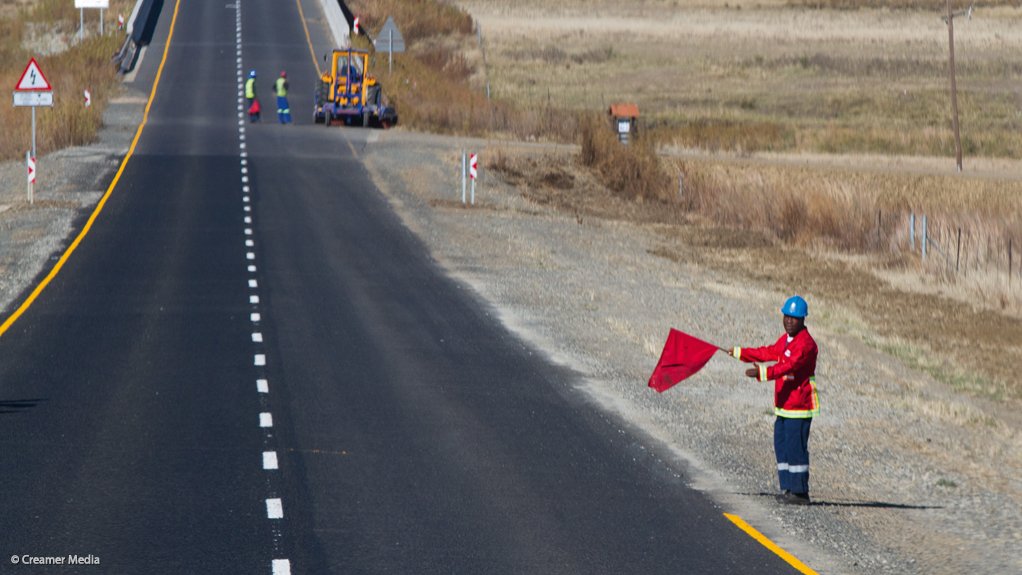The Organisation for Economic Cooperation and Development (OECD) is forecasting that South Africa’s growth will slow to 1.8% in 2022 and dip to 1.3% in 2023 and says that a swift implementation of market reforms, including those needed to address the electricity crisis and tackle infrastructure backlogs, is required to reduce uncertainty and boost growth.
During the virtual launch of the ‘OECD Economic Surveys: South Africa 2022’ report on Thursday, acting chief economist Álvaro Pereira described the country’s electricity shortage as its “most pressing internal bottleneck to growth”.
“This is why it's so important to hasten reforms in the energy sector in the near future,” he said, describing security of supply as crucial for investor confidence and for reversing weak investment.
The report notes the surge in load-shedding hours since 2018 and also highlights the country’s slow progress in procuring new generation from independent power producers since the resumption, following a seven-year hiatus, of procurement activities in 2021.
It welcomes recent amendments allowing distributed renewable generation projects to proceed without licensing but says steps should be taken to ensure that registration processes do not delay implementation.
“Admitting private providers of renewable energy would quickly increase electricity availability,” the reports states, adding that it would also help lower South Africa’s carbon emissions, which are particularly high when measured per unit of gross domestic product (GDP).
Besides electricity, the report also underlines the need for increased infrastructure investment to lift productivity, which has fallen over the last decade in sync with declining investment.
Reliable infrastructure provides the basic foundation for productive economies, the report states.
“Productivity growth is also held back by an insufficient provision of high-quality infrastructure, from roads and railways to telecommunications.
“Improving the effectiveness of public investment, in part through strengthening the selection process for large infrastructure projects, would be a step towards restoring productivity growth.”
Public and private sector investment, which amounted to 17.9% of GDP in 2019, is far from the National Development Plan target of 30% of GDP, the report points out.
The financing of road infrastructure, the OECD states, is insufficient, adding that the lack of systemic and regular maintenance is accelerating road deterioration.
In addition, the lack of competition in port services has contributed to lower investment, higher tariffs and a diversion of sea traffic.
Low-quality and unequal telecommunication infrastructure, meanwhile, is slowing digitalisation of the economy.
The OECD recommends that the funding of road infrastructure from the general government budget be augmented based on cost-benefit analyses and that transfers of maintenance funds to local authorities be made conditional on preventive maintenance implemented.
More controversially, it proposes that prepayment and mobile payment systems be developed for e-tolls, the payment for which it says should be enforced.
In the area of digital infrastructure, the report recommends that new frequencies be allocated in a fair manner and that the sector regulators and the Competition Commission be aligned to strengthen competition policies and their enforcement.
Besides infrastructure, the OECD believes higher levels of productivity can be fostered by upgrading basic skills through increasing the quality of primary and secondary schooling, as well as by further developing vocational training and adult learning.
The report also suggests that the current limited access to higher education might be remedied through a move to a formula-based funding for universities, taking the number of students, their socioeconomic background, and outcomes into account in the formula.
South Africa’s Deputy Finance Minister Dr David Masondo said the report assisted in highlighting areas in need of improvement and also allowed government to “think more clearly about the trade-offs inherent in its policy decisions”.
Such trade-offs, he said, were necessary in light of government’s “overstretched” fiscal positiion and given the prospect of a slower recovery, partly owing to the economic fallout from the conflict between Russia and Ukraine.
“The roots of our growth challenges are well understood.
“Low levels of productivity and competitiveness are inhibiting job creation and investment.
“It is for this reason that government is focused on implementing structural reforms to raise growth while embarking on a path of stabilising our debt,” Masondo said.
EMAIL THIS ARTICLE SAVE THIS ARTICLE ARTICLE ENQUIRY
To subscribe email subscriptions@creamermedia.co.za or click here
To advertise email advertising@creamermedia.co.za or click here











